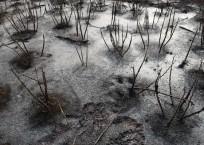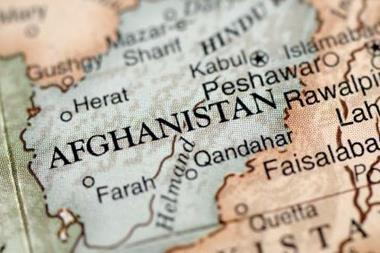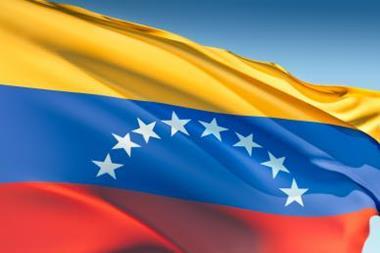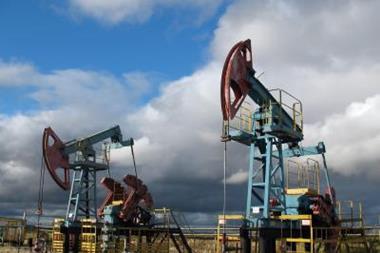Scenario planning can build capacity to adapt to large-scale political shocks
Political risk is re-emerging and changing its shape with the rise of national oil companies and sovereign wealth funds whose actions may be driven by political considerations rather than commercial ones. Kirsten Parker and Rafael Gomes discuss the strategy that organisations should take in seeking to manage the risk
Political risk, the potential for political developments to hinder or help business, had a low profile in the 1980s and 90s, but the re-emergence of ‘national champions’, such as state-owned companies seen as strategically important for governments, is creating fresh challenges.
We have seen this most significantly in the oil industry. National oil companies such as Sonatrach (Algeria), Petronas (Malaysia), and NNPC (Nigeria) have increased their equity stakes in joint ventures. The strategy of Russia’s Gazprom has been closely aligned to the country’s foreign policy. For example, Gazprom increased gas export prices to Ukraine four-fold in 2006, in order to exert pressure during an election period. Russia’s allies such as Belarus were spared the price hikes.
In a similar vein, Venezuela’s PDVSA provides a major share of financing for the government’s social projects, and has been instrumental in providing refining capacity for President Chavez’s allies. By contrast, there is evidence that many state companies, such as Brazil’s Petrobras, are driven primarily by commercial incentives rather than political strategy, which adds complexity to the risk environment. Outside the oil sector, national mining companies, such as Uzbekistan’s Goskomgeologia, state banks, such as the Industrial and Commercial Bank of China, and sovereign wealth funds like the Qatar Investment Authority are also emerging as influential market players.
As new politically-affiliated actors (re-)emerge, so the mechanisms of political risk multiply. In the 1970s, a government might have deployed the army to expropriate company assets. Today, political risk insurers can receive claims of expropriation because new environmental taxes were enacted, or because money transfers were delayed.
The risks were felt recently in Ecuador, Democratic Republic of Congo (DRC) and Venezuela. In Ecuador, the government cancelled 587 of the country’s 4,112 mining concessions, accusing companies of failing to pay an environmental conservation tax. In the DRC, the government suddenly began to enforce local value-adding processing rules for minerals in order to raise revenue, but companies had insufficient capacity for the task. As a result, some regions’ minerals exports were suspended. Finally, companies have claimed that they were deprived of financial capital, even in the absence of formal capital controls, in Venezuela, where the Foreign Currency Administration Commission (Cadivi) often informally delays currency transfers.
One reason why the political risk environment is likely to continue to diversify is that the institutions that historically acted as global policy anchors: the IMF, World Bank, and WTO, have experienced a major decline over the past decade. For over 50 years, these organisations held governments in many developing countries to a set of policies that promoted investors’ interests, in exchange for development loans. There are many reasons why their influence has declined. Debt relief and high commodity prices have improved borrowers’ foreign exchange positions and enabled many, such as Brazil, to write off their debts ahead of schedule. Newly wealthy donors, such as China and Venezuela, do not request policy reforms in exchange for loans.
And yet, political risk is not just an emerging market issue. In recent years, we have seen large shifts in financial regulation in Western Europe and the US, tax reform for North Sea oil exploration in the UK, and strikes at Canadian nickel mines.
Insurance and good connections
To address these issues, companies have traditionally managed political risk by sharing risk assessments across departments, hedging with financial instruments, especially political risk insurance, and developing local contacts. Yet, as the world changes, it becomes very difficult to manage political risk solely with insurance or good connections. Regulatory expropriation, for example, often does not qualify for an insurance claim. Key decision-makers are diffused across government agencies and companies, making due diligence a more technical and drawn-out task.
A good starting point in this climate is to develop an intelligence collection plan (ICP) that sets out in detail which risk indicators to monitor. For an issue like regulatory expropriation, an ICP should identify not only what would drive a government to adopt new regulation, but also how changes would be felt. An ICP not only outlines what questions to ask, but also helps divide responsibilities for monitoring the risk environment across the organisation.
This structured intelligence collection then informs a quantitative risk register or a cash-flow model. It enables companies to analyse how well diversified their political risks are across countries, and how political risk compares to other important risk classes, as part of an integrated enterprise risk management (ERM) process. From a political risk perspective, planning is most effective when it is set against scenarios that are selected according to likelihood, and tested against high-impact, low-probability events. In this way, scenario planning can reveal not only best-response strategies, but also build capacity to adapt to political shocks.
Selection of forecasts
In our strategic forecasts we include both new business opportunities and nuanced analysis of the ways in which the risk profile of key markets is evolving. This is a selection of our forecasts for 2008.
Russia
In Russia, Medvedev’s election as president ensures continuation of the course set by Putin: state control of strategic economic sectors. Putin will continue to wield most of the political power in the next two years due to his status as mediator between key influence groups. Medvedev is widely perceived to be an economic liberal and does not have a background in security services or the Communist party apparatus. However, we forecast that he will persevere with the agenda of securing state-owned enterprises a controlling stake in almost all major projects, while rhetorically being more conciliatory towards foreign investors than Putin. Foreign and domestic energy operators currently holding exploration/extraction licences in strategic deposits are likely to see their shares diminished and they will probably be compensated at below market levels.
In contrast to the state’s increasing control of strategic economic sectors, we expect regulatory liberalisation in non-strategic sectors. We also assess that the emphasis on the importance of priority national projects will continue, increasing the social orientation of the state budget. We forecast significant tax concessions for companies investing in the development of vital infrastructure and high-tech sectors as well as a gradual decrease of VAT over the next three years.
China
In China, the 17th National Communist Party Congress saw several members of China’s fifth generation leaders admitted into the central government. These new leaders are more pro-business; most have received a business-related education rather than being shaped by the effects of the Great Leap Forward or the Cultural Revolution. There is a greater emphasis on projecting China’s economic and trade strength globally, particularly regarding the development of Chinese brands in Western markets. The internal struggle for control of the Party is unlikely to undermine its authority before 2012, but Hu Jintao will probably be the last paramount leader as China creeps towards a more representative form of government.
External challenges to the Party’s authority are mounting with growing discontent at working conditions, low wages, widening income disparities, land requisition, environmental pollution and corruption amongst local party officials. Industrial action is likely to increase as workers become more unionised, but establishing an outlet through which workers can voice grievances will probably reduce the frequency with which protests turn violent. Restrictions on private land ownership are gradually being eased, and foreign businesses are entitled to land-use rights. Land disputes pose significant violent risks and a growing threat to the political status quo, with local party officials and properties typically the primary targets.
Iraq
In Iraq, we forecast that evidence of dramatically decreased frequency of terrorist attacks in the western al-Anbar province will be offset by increased attack scale and frequency in the north. The Islamic State of Iraq (aka al-Qaeda in Iraq) is shifting into the provinces of Nineveh, Salheddine and Diyala (in particular the cities of Ba’quba, Samarra, Beiji, Tarmeya, Dhuliya, Tikrit and Mosul) and will stage more attacks on security forces and transport and energy infrastructure. A referendum on the disputed oil-rich city of Kirkuk is likely to be postponed, at least until agreement is reached on a national oil law (which is improbable in the first half of 2008). The Kurdish Regional Government is unlikely to use force or declare independence. However, while some oil companies are already operating in the Kurdish region, the lack of an agreed legal framework will be a key barrier to the entry of oil majors.
Niger Delta
In the Niger Delta, our dataset shows that following the arrival of the militant group Movement of the Emancipation of the Niger Delta, attack frequency and scale has increased dramatically. The average number of major violent incidents in 2006 was more than double the monthly average in 2005, and the monthly average in 2007 almost double again. Our analysis also shows increased tactical capability, with more killings of kidnapped individuals, more bombings and more offshore attacks in 2007. Rivers State, in particular, saw the number of violent incidents more than double from 2006 to 2007. A lasting negotiated settlement in the Delta faces many obstacles, not least the sheer number of armed groups (in the hundreds) with conflicting aims and motives (some criminal, others political and still others focusing on specific issues.
Colombia
In Colombia, we assess that the FARC will step up attacks ahead of moves towards peace talks before 2010 when President Uribe leaves office. Despite improving security overall, pipelines and electricity distribution will be key targets in the next three years, with the southwest and the Venezuelan border area key hotspots. In Venezuela, despite his referendum defeat, President Chávez is likely to remove foreign investors’ legal protection and seek greater economic control.
Postscript
Kirsten Parker is director of analysis and Rafael Gomes is deputy director of political risk, Exclusive Analysis, www.exclusive-analysis.com


















No comments yet